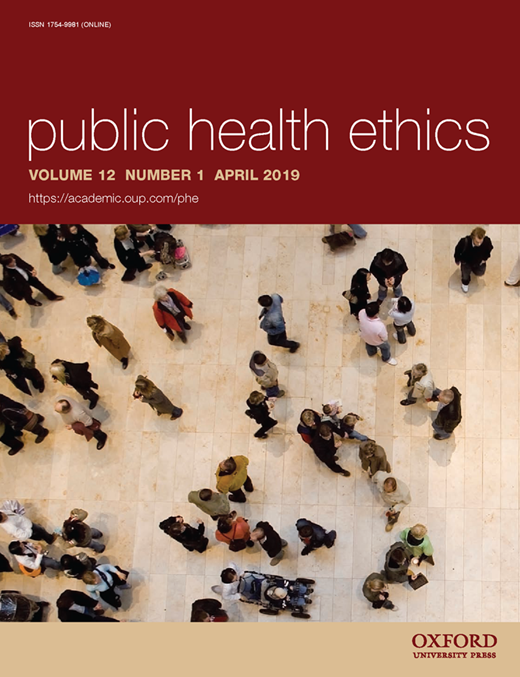Vaccination Ethics
Introduction
The World Health Organization recently included vaccine hesitancy in the Top 10 of global health threats. In high income as well as low income countries, people increasingly question the need for, and safety of, vaccinations and therefore decide to forego immunization of their children.

In 2018, European countries registered more than 80,000 cases of measles. 72 children and adults died as a result of measles. The USA had more or less eliminated measles in the year 2000, but outbreaks have been on the rise since then, and in April 2019 a large outbreak in New York prompted far-reaching infectious disease control measures. In the past it was often religious convictions that led people to refuse vaccination. Nowadays the main ground for refusal or hesitance is fear of side-effects and doubts about the importance of protecting one’s children against diseases like measles or pertussis. Often these beliefs are triggered or sustained by ‘viral misinformation’, undermining trust in vaccines and vaccinations.
Several countries and states have now reinforced their immunization policies, either by switching from a voluntary to a mandatory system, or by making it more difficult (in a mandatory program) for parents to be exempted from participation.
Vaccination has raised controversies ever since Edward Jenner conducted his experiments with cowpox. For public health authorities and professionals, vaccine hesitancy and refusal create ethical dilemmas. To what extent can it be justified to coerce parents to accept vaccination for their children? Do citizens have a responsibility to accept vaccination and contribute to population-level immunity that benefits everyone? Ethical questions do not only arise in relation to vaccine refusal and suboptimal coverage – but this is certainly one of the central themes in vaccination ethics.
To contribute to the current ethical and political discussions on immunization, we present a virtual special issue of Public Health Ethics that brings together some of the best work on vaccination ethics in the past few years. We look forward to receiving more work on immunization in the future.
Marcel Verweij and Angus Dawson